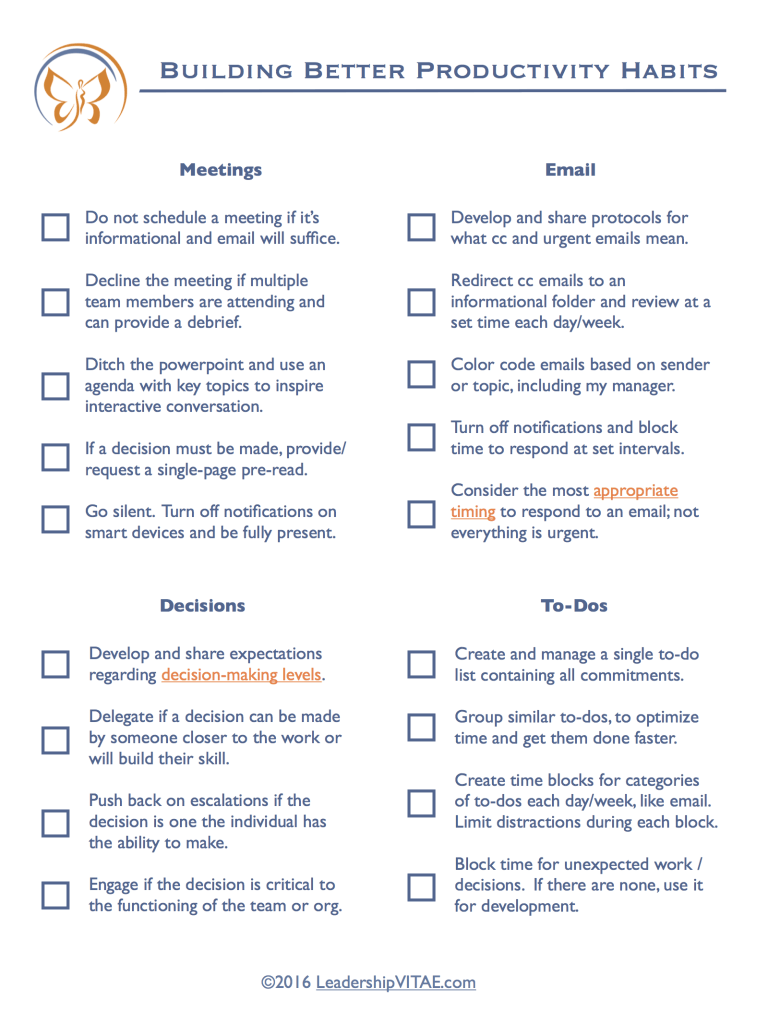
Everywhere we turn, we can find advice on how to be a better version of ourselves. A better leader, employee, spouse, parent or friend.
In order to improve anything, we must take action. Read this article. Attend this conference. Follow x steps to a better blah blah blah.
Sounds great, doesn’t it? Sure, assuming we don’t already have a full plate. That we aren’t over-scheduled, overloaded and overwhelmed.
The Importance of Creating Time and Space
Last month, I attended Mass Conference for Women. Following the event, I was asked to participate in a panel, where several of us shared our experience.
At the end, we were asked to relate the most important take-away that we would bring back to our role, team or life.
My aha moment wasn’t at the conference itself. The sessions were interesting and provided good insight in a number of areas, but by themselves, they offered little value without two critical components: time and space.
I realized those were the true gifts the conference offered. Time away from my desk, team, and family was not enough. I also had to let go of my daily commitments long enough to actively listen and engage.
While we may be able to find time, it is only by creating space that we open ourselves to opportunity. If our heads are buzzing with a million and one things, there is no room left for new information.
Creating mental and physical distance for our commitments creates capacity for learning. For our aha moments.
Get Real About What is Necessary
After the panel was over, I was approached by a manager who was interested in hearing more about creating space. He wanted to know – how do we do we create space for ourselves and our teams when we are already overloaded?
I asked the manager – how many meetings do you attend that already have several of your team members present? How much time do you spend on perfecting powerpoint presentations, instead of focusing on the key message and making it “good enough?”
I realized how much unnecessary work I was doing, and how many conversations I did not need to engage in, following my medical leave over the summer. When I returned, it was part-time, forcing me to take a hard look at how and when I was engaged.
I had no choice with the limited time available. I had to let the unnecessary go.
Cut out Unnecessary Habits
Instead of allowing my team and I to fall back into old habits, I did my best to keep up the patterns they established in my absence.
I declined meetings and asked to be made aware of key issues or opportunities. I encouraged the managers to continue working through day-to-day challenges amongst themselves, as they had – successfully – while I was away.
Feedback was a critical factor in successfully empowering the team and focusing my involvement where it mattered most. Did I really need to be involved in that decision? Could the information shared in that meeting be covered in an email?
The process helped me, and the team, determine whether it was necessity or comfort driving our behaviors. Challenging our comfort and being honest about what is really necessary has helped all of us get time back.

In addition, by focusing our engagement in critical issues and decisions, it created mental space. It limited the minutiae and details buzzing around our heads throughout the day.
When I went back to work full-time, I had HOURS of time available. Not just time, but quality time that was available for complex thinking, improvement, and deep learnings.
If you are interested in the habits the team and I adjusted upon my return to work, I have created the following checklist to help you find more time in your day.
Why We Must Ask for More
No one wants to go out on medical leave. I do not recommend it as a way to create time and space for improvement. What can we do instead?
In my earliest role, my manager expanded my responsibilities every year. More recently, there are special assignments I’ve been asked to take on, in addition to my day job.
Each time, even though I felt like I already had a full plate, I was able to fit in the new work. Looking back, I did exactly what I had returning from medical leave. I was more selective in how I spent my time, delegated more, and created the capacity.
Rather than waiting for our leaders to assign us more, we need to ask for it. When we have more to do – or less time to do it – we have to prioritize and focus our efforts. We optimize what we do and how we do it, leaving the unnecessary by the wayside.
There are several benefits to asking for additional work:
- An increased independence and empowerment of our teams.
- It focuses our contribution – and that of our teams – on the most valuable work.
- It readies us for an expanded role through stretch assignments that build the skills needed for a promotion or role change.
Reinforce Good Habits
How does asking for more work create time and space for development? It will be filled with the new work!
The intention is to develop improved habits. To recognize what’s comfortable versus what’s necessary. To determine what stays on the plate and what falls off. Consistently.
For most of us, our work expands and contracts based on the time available. When special assignments are over, we often go back to old habits to fill in the capacity that is suddenly available, rather than using the time for improvement opportunities.
If we find ourselves going back to what’s comfortable, it might be a sign to ask for another assignment. Alternatively, we can create our own…
Create a Development Bucket List
Have you always wanted to do skip-level meetings with members of your team? Read that business book? Attend that course? Engage with or become a mentor?
Create an improvement bucket list with all those “want to’s” on it. When you identify behaviors to change (like perfecting a powerpoint presentation or attending an informational meeting), select items from the list that fit the time available.
Similar to special assignments, pursuing bucket list items can prepare us for a next role or promotion. As with all improvements, however, it is critical to apply whatever learnings along the way. A book, course or insight without application is information, not skill.
No matter what or why we are trying to improve, creating time and space is necessary for the quality, critical thinking required. While it may seem counter-intuitive, asking for more helps us create them by forcing us to rethink our habits and engage in the most valuable aspects of our work.
When you want to create the time and space to learn something new, what steps do you take? Do you purge unnecessary activities, add it to your existing schedule, or something else? Please share your experience in the comments to provide an additional perspective to consider.








